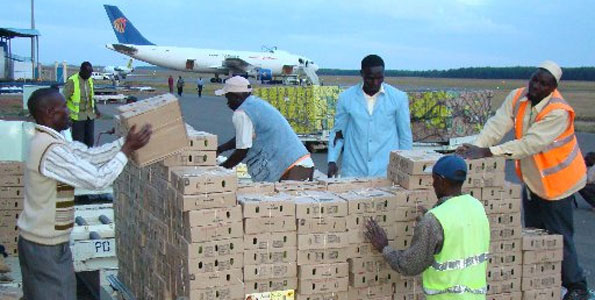Fresh drive to resuscitate Bulawayo industries
THE newly elected Confederation of Zimbabwe Industries (CZI) Matabeleland Chapter executive, has set the resuscitation of the city’s industrial base as top priority as it believes Bulawayo has vast potential to regain its once-envied industrial hub status.
The leadership said there is huge scope for the region to tap into its wide range of potential local and export markets.
The region is also linked to the north and south by a reliable corridor with rail and road infrastructure, making transportation of good cheaper and reliable.
Added to that, the entire Matabeleland region is endowed with vast mineral resources which when fully exploited stand to revive a wide range of industries.
A few years ago, the city’s industrial sector was on a sharp decline with a number of companies according to the industrial lobby group either closing shop or relocating to Harare, and rendering thousands of people in Bulawayo jobless.
However, with the coming in of the Second Republic and the introduction of a number of deliberate ease-of-doing-business policies, the past years have seen a number of companies emerging from the red and growing their capacity utilisation.
Further to that, developing a solid domestic industrial base is a priority under the Second Republic’s National Development Strategy (NDS1), a critical building block towards the attainment of an upper middle-income economy vision by 2030, and this dovetails with the new executive agenda.
Despite operating challenges such as inadequate access to funding, antiquated equipment, and pressure from cheap imports, the city’s industry has recently been showing signs of positive recovery in response to supportive Government measures.
For instance, the Government is nursing the revival of National Blankets, which was closed some years back and is now on its feet – being helped with retooling.
Similar efforts have been made to boost the Cold Storage Company (CSC) through a deal with Boustead Beef, which culminated in the official re-opening of the giant beef processor by Vice President, Dr Constantino Chiwenga, last year.
Coming from a background of closure of companies and loss of jobs experienced in the last two decades, the second largest city is now focused on revitalising its key industries, guided by the new value chain model.
This week, CZI Matabeleland region held an annual general meeting in Bulawayo where General Belting general manager, Joseph Gunda, was elected president.
He takes over from Beitbridge Bulawayo Railway (BBR) general manager, Raymond Shoniwa who saved his two terms.
In an interview, Gunda noted that resuscitating the regional industrial base is critical and there is a need for industrialists to regroup and form a think tank to spearhead the turnaround drive.
“Going forward, we would like to engage the Government and craft proper guidelines on foreign investors, we want them (foreign investors) to incorporate local companies as they build up their factories,” he said.
“We do have local and export markets and those should be our driving force to ensure that there is attraction for investment and the right investment so that whoever comes in to invest in Bulawayo even in the country at large must benefit the communities and ensure appropriate use of resources,” said Gunda.
He said when the construction of the massive US$1,5 billion Dinson Iron and Steel Plant in the Manhize area of Chirumanzu District in the Midlands province is complete and operational firms particularly the foundry sector stand to benefit.
The steel sector is one of the dominant industries driving the economy of the city. Thousands of people were employed by the sector.
Gunda said the Matabeleland region has vast mineral resources and there is a need to make use of those to grow the regional economy.
Commenting on the need to improve the industries in Bulawayo, the newly elected vice president Clive Oxden-Willows, who is the managing director of Refrigeration and Air Conditioning Services Pvt Ltd, said to develop industries in Bulawayo, there is a need to access low-interest loans with a long tenure.
According to Oxden-Willows, loans with five percent interest and below with between five to 15 years term will aid industries to retool.
Shepco group chief executive officer, Sheperd Chawira, also said sustainable and affordable funding was a stumbling block.
“Most industries have antiquated equipment and for a company to retool, they need long-term finance at lower interest rates. As long as we do not retool, we are not going to be competitive regionally and internationally, because we are a high cost producing industry,” he said.-ebusinessweekly









